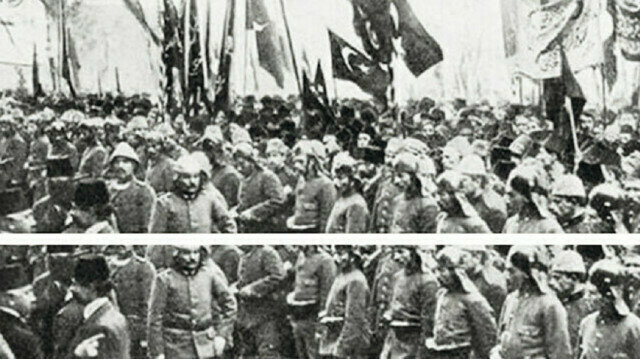On the eve of another April 24, the Turkish public is curious whether the US will join the dozens of countries that labeled the tragic events of 1915 as a "genocide." While Turcophobia remains high in specific segments of the Western public and Turkish-American relations are passing through a turbulent period, US President Joe Biden might this time overlook the strategic importance of Turkish-American relations or the historical and moral dimension of 1915 to name what happened as a so-called "genocide."
Without a doubt, such a move would further hamper bilateral relations, which are already in a somewhat derailed situation. It could also have heavily negative implications on Turkey's relations with the wider Western world and frustrate Turkish society with the West, among other things. However, the least likely thing that could happen in such a situation would be for it to present a contribution to Turkish-Armenian reconciliation, as those who fervently insist on the politicization of 1915 and it being recognized as a so-called "genocide" argue. It instead would fuel Turcophobia and Islamophobia in the West and end any possibility of understanding between Turkish and Armenian nations to understand each other's sufferings during the last decades of the Ottoman Empire, within which they co-existed for hundreds of years.
On the road to 1915, a multitude of external and internal dynamics played a role. Worsening the social and economic situation of the larger Muslim elements in Ottoman Anatolia from the 1830s in parallel with the accelerated infiltration of Western capitalism, which utilized and enriched the non-Muslim minorities of the empire, including Armenians, created a profound tension between inter-communal and inter-religious relations. Demographic pressure caused by the expulsion of Turks from the Balkans as a result of the 1877-78 Turco-Russian War and the Balkan Wars in 1912-13, as massacres of Turks at the hands of Christian gangs and armies further heightened ethic and religious tension between the constituents of the Ottoman Empire.
These were in addition to the increasingly systematic European intervention into Ottoman state and societal affairs on the side of Armenians and generally of Christian minorities during the long 19th century, aptly regarded as the age of imperialism and age of nationalism. During this period, European diplomatic representatives extended extrajudicial protection they had under the Capitulation regime. This led progressively militant Armenian nationalists to think an independent Armenia could be formed with Western powers' assistance. Against this background, some segments of the Ottoman Armenian community rejected to seek common ground to defuse aggravating inter-communal tension between Armenians and Turks and Kurds. Instead, terror was embraced, particularly by the Armenian Revolutionary Federation (ARF), a.k.a the Dashnaksutyun, to intimidate Muslims and, more importantly, a strategic tool to provoke a harsh Ottoman response, which eventually would lead to a Western armed intervention on the side of Armenians. Sasun rebellions in the 1894-1904, occupation of Ottoman Bank HQ in Istanbul in 1896, the Khanasor terror campaign against Kurds in eastern Anatolia in 1897, and an assassination attempt against Sultan Abdulhamit II in 1905 are among the most well-known chapters of the ARF's terror campaign to this end before 1915.
Therefore, the events in 1915 should be understood as an escalated continuation of decades of tension between Ottoman Armenians and Ottoman Turks and Kurds. Again, after the very goal of establishing an independent Armenia through terror and the help of the advancing Russian Army, Armenian nationalists launched an extensive terror campaign against Muslims in eastern Anatolia, which resulted in massive tragic losses from both sides and the forcible relocation of hundreds of thousands of Armenians to Ottoman Syria.
Neither back then, nor currently, Western intervention or expectations of a solution from the West have not created any solution for Armenians. On the contrary, the politicization of the 1915 events and exploitation of Armenians' sufferings, without mentioning the massacres against Turks and Kurds, by ultra-nationalist elements of the Armenian diaspora and Turcophobic Westerners have only prevented the building of a mutual understanding between Turks and Armenians and normal relations between Turkey and post-Soviet Armenia.
To create a common language of dialogue between Armenians and Turks, which would eventually lead to understanding each other's traumas and heal open wounds bleeding for decades, a historical commission should be formed, as suggested by Turkey. The commission would examine all available related documents and enable scholars to discuss the reasons and consequences of what actually happened in 1915.
Ahmet Gencturk is a PhD fellow at the Department of History, Cultural Heritage and Society of University of Rome2 Tor Vergata, Italy.
Read the original article on Anadolu Agency.
More about:
















































